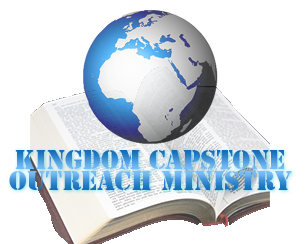You are here
PROPHETIC INTERCESSION (2)
“O Lord God, forgive, I pray! Oh, that Jacob may stand, for he is small!” – Amos 7:2b
Amos presents a model of PROPHETIC INTERCESSION: “O Lord God, forgive, I pray! Oh, that Jacob may stand, for he is small!” (Amos 7:2b). Amos witnessed two negative visions of the future – one of locusts (vv.1-2a) and another of a shower of fire (v.4) – both representing impending judgement upon Israel. He exercised the covenant privilege of prophetic intercession, pleading for mercy, knowing the vulnerability of his people. Remarkably, in response to the prophet’s plea, the Lord listened, considered, and relented from punishing their sins: “So the Lord relented concerning this. “It shall not be,” said the Lord” (v.3).
In the first vision, Amos saw a swarm of locust devour the spring crop. At the most hopeful moments when people expected to receive their portions, locusts would invade to devastate the crops that were intended for humans. Famine would ensue as there would be no crop and no grass for the livestock. In the second vision, Amos saw a fiery judgement that consumed the land. “Fire’ was a common judgement metaphor in chapters 1 and 2 of Amos. Here, it probably referred to a heat wave that would dry up the water in the land, causing extreme drought. In response to both visions, Amos pleaded: “O Lord God, cease, I pray! Oh, that Jacob may stand, for he is small!” (v.5b).
Amos plea was that Jacob would not survive such onslaughts; an extensive famine or drought would totally annihilate the population. Did not the God of Israel want His people to survive? He implicitly alluded to the covenant promises of God, making a case, as did Moses in Exodus 32. God relented in response to both intercessions, declaring that what Amos saw would not happen. Like Amos, we can intercede in the hope that God would listen and respond to our prayers, change His Mind, and act in certain ways. Indeed, Mercy often triumphs over Judgement! In a sense, the Sovereign but Merciful God created us as junior partners in the world, to co-rule and co-create with Him. We make our case in prayer and leave it in His hands, trusting that He will work out the divine purpose in whatever happens.
To be a prophetic intercessor requires being spiritually secure because at times we may see, hear, or be alerted to something – the prophetic element; and then out of the intercessory capacity, God uses us to nullify what was seen or heard. It makes us look like we heard wrong, saw wrong, or proclaimed wrong, as was the case with Jonah. He proclaimed destruction to Ninevah and then the people repented and God postponed that destruction (Jon.3:10). Prayer is one of the ways history moves forward; it is one of the ways we create the future with God. This is part of the honour and glory God has given to redeemed humanity as we image Him within the creation (Gen.1: 26-28; Psalm 8).
Adetokunbo O. Ilesanmi (Meditations)
- Log in to post comments
Latest Tweets
No tweets to display now.
Our Vision
The vision of KCOM is that:
"the earth shall be filled with the knowledge of the Glory of the Lord as the waters cover the seas" (Habakkuk 2:14).
"But we all, with open face beholding as in a glass the Glory of the Lord, are changed into the same image from glory to glory even as by the Spirit of the Lord" (2 Corinthians 3:18).
Copyright © 2013–2026 Kingdom Capstone Outreach Ministry. | Designed by ZoeWox Technologies
